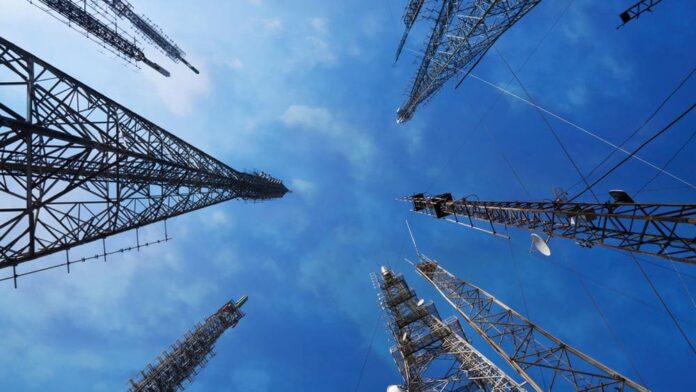ISLAMABAD: The telecom industry in Pakistan has faced significant setbacks in Foreign Direct Investment (FDI), contributions to the national exchequer, and overall investments during the fiscal year 2023-24, highlighting the broader economic challenges confronting the country.
According to the annual report released by the Pakistan Telecommunication Authority (PTA) on Monday, FDI in the sector dropped by 21% to $46 million in 2023-24, compared to $58 million in 2022-23. This decline continues a downward trajectory from $204 million in 2020-21 and $175 million in 2021-22.
Similarly, investments in the telecom sector fell slightly by 0.65%, amounting to $765 million in 2023-24, down from $770 million the previous year. This is a significant reduction from $1.657 billion in 2021-22 and $1.214 billion in 2020-21.
Despite this, cellular mobile operators (CMOs) increased their share of investments, contributing $431 million in 2023-24, up from $396 million in 2022-23. Over the past five years, total investments in the sector have exceeded $3.63 billion.
The PTA report also highlighted record-breaking telecom revenues of Rs 955 billion in 2023-24, with Rs 335 billion contributed to the national exchequer. However, this contribution was slightly lower than the Rs 341 billion recorded in 2022-23.
Mobile Average Revenue Per User (ARPU) saw a notable rise, reaching Rs 276 per month in 2023-24, compared to Rs 229 the previous year. During the April-June 2024 quarter, ARPU further increased to Rs 302 per month. Among operators, Jazz and Ufone reported strong growth, with ARPU figures of Rs 327 and Rs 280, respectively, in 2023-24, compared to Rs 254 and Rs 233 the prior year. Telenor and Zong also reported increases, with ARPU reaching Rs 214 and Rs 258, respectively.
Data revenue now accounts for 65% of total mobile industry revenue, underscoring the growing importance of broadband and digital services in driving profitability.
Challenges in 5G Rollout
The PTA report outlined significant hurdles to the deployment of 5G in Pakistan, including substantial investment requirements, slow returns, and limited availability of compatible handsets. Infrastructure upgrades, such as installing advanced antennas and fiber optic backhaul, demand significant capital, while price-sensitive consumers pose an additional challenge.
To address these issues, the report emphasized the need for government incentives and public-private partnerships (PPPs). Bridging the digital divide remains critical, as rural areas struggle with logistical and cost barriers. Public awareness campaigns are also necessary to dispel misconceptions about 5G and educate consumers on its benefits.
Rising Cybersecurity Threats
The report highlighted an alarming increase in cyberattacks during 2023-24, including malware, phishing, ransomware, and insider threats. Advanced Persistent Threats (APTs) such as Gamaredon, Lazarus, and SideWinder targeted critical infrastructure, healthcare entities, and government organizations in Pakistan.
Globally, the telecom sector ranked as the fifth most targeted for phishing attacks, which surged by 173% in 2023-24. Despite these challenges, Pakistan improved its standing in the 2024 Global Cybersecurity Index, advancing to Tier-1 (Role Modeling) status and ranking among the top 40 countries, up from 79th previously.
Commenting on the decline in FDI and investments, PTA Member Finance Muhammad Naveed attributed the trends to Pakistan’s broader economic difficulties. Despite these challenges, the telecom sector remains a vital contributor to the national economy.
Meanwhile, Chairman Senate Syed Yousaf Raza Gillani urged the government to reduce the digital divide between rural and urban areas and integrate Artificial Intelligence (AI) solutions across sectors. Speaking at the National Broadband Network Forum 2024, organized by the PTA in collaboration with Huawei, Mr. Gillani stressed the need for high-quality internet and IT services for the public.
“To achieve this, the government must remove barriers to internet efficiency and foster public-private partnerships to advance its digital agenda,” he said.
Industry leaders expressed concerns over sudden internet shutdowns, throttling, and app blockages, which deter investors. Jazz CEO Aamir Ibrahim remarked that while the government is planning a 5G auction for April 2025, “4G for all is better than 5G for a few.” He urged the authorities to address the underutilization of spectrum and introduce policies to raise ARPU to global averages.
State Minister for IT Shiza Fatima assured continued government support for bridging the digital divide. Acknowledging security and cyber-related challenges, she expressed optimism about the potential of satellite-based internet to improve connectivity nationwide.
Secretary MoIT Zarar Khan emphasized efforts to build a digitally inclusive Pakistan, adding that tax reductions for the IT sector could be considered if guaranteed for reinvestment in infrastructure.
The event also featured insights from PTA Chairman Maj. Gen. (Retd.) Hafeez-ur-Rehman and Huawei President Feng Zhishan, who underscored the role of innovation in expanding broadband access.
The NBN Forum 2024, the second in a series of international forums hosted by the PTA, aims to increase broadband penetration in Pakistan.




